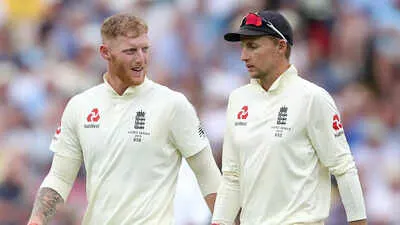
Former Australian spinner Brad Hogg has spoken out in defence of slow over-rates in Test cricket, describing them as a potential sign of “quality cricket” when the contest is tense and the stakes are high. His comments came in the wake of England being docked two World Test Championship (WTC) points for maintaining a slow over-rate during their gripping victory over India in the third Test at Lord’s.
The Test, which England won by 22 runs in a thrilling finish, saw them fall two overs short of the required rate. The International Cricket Council responded by fining the team 10% of their match fees and deducting two WTC points. This dropped England down the WTC standings, from second to third, causing significant discussion about the fairness and rigidity of the rule.
Hogg, known for his analytical insights and passionate love for the traditional format, defended England’s over-rate by arguing that tense situations often call for slower play. According to him, when a Test match reaches its boiling point, the strategic depth and psychological intensity between bat and ball naturally slow the pace of the game.
“When there is a lot of tension, I don’t mind a slow over-rate,” Hogg said. “We want that tension. We want players showing their character. That’s when Test cricket is at its best.”
He emphasized that the quality of the match at Lord’s was high, with momentum swinging back and forth, and players visibly investing emotionally and tactically. Such scenarios, he said, justify a marginally slower pace, as teams take more time to make decisions, adjust fields, and strategize each delivery.
Hogg pointed to key moments in the match—like KL Rahul’s dismissal and Rishabh Pant’s crucial run-out—as evidence of the psychological battle that was unfolding. These weren’t just routine overs being bowled; each moment carried weight, and the players’ reactions reflected that pressure.
He also drew a line between chronic time-wasting and situational slow play. Hogg clarified that he’s not supporting deliberate delay tactics, but rather calling for context-aware assessments of over-rates, especially in games where the tension is palpable.
The incident reignited debate within the cricketing community. While some insist that over-rate penalties are necessary to maintain discipline and keep matches viewer-friendly, others believe that rigid enforcement can undermine the natural rhythm and intensity of Test cricket. Supporters of Hogg’s view argue that in key passages of play, particularly on the fourth and fifth days, allowing time for tactical deliberation can enrich the spectacle rather than detract from it.
The ICC has made over-rate compliance a priority in recent years, especially with the advent of the WTC points system. Teams now lose one point for every over short, making it a significant issue in the race to the final.
Brad Hogg’s remarks may not change policy immediately, but they highlight an important tension in modern cricket—between preserving the traditional depth and drama of Test matches and enforcing rules designed to streamline the sport in a fast-paced world.

